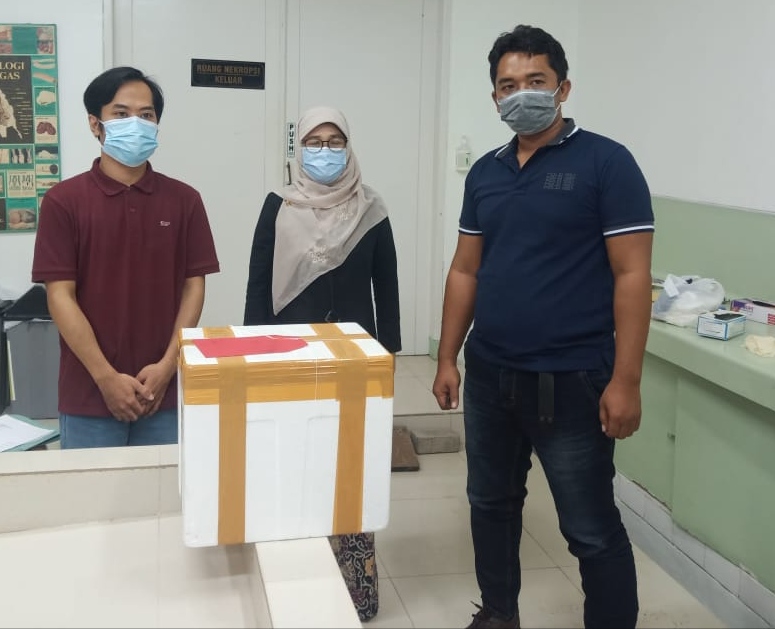UNAIR NEWS – Blast fishing by fishermen is an issue that needs to be considered by various parties, including academics. As reported by radarbanyuwangi.jawapos.com, some fishermen from Rajegwesi, Sarongan Village, Pesanggaran Subdistrict, managed to catch three people suspected of blast fishing in the waters of Poncomoyo, Kandangan Village, Pesanggaran Subdistrict, Monday, December 28, 2020.
As a response to this issue, drh. Bilqisthi Ari Putra or drh. Bilqisthi, lecturer at Faculty of Veterinary Medicine (FKH) UNAIR explained that FKH team was asked to become an expert witness. The FKH team did not immediately go to the scene of the incident, but instead examined and carried out a visum on evidence in the form of fish.
“The examination has been completed and it is certain that the fish were victims of the fish bomb explosion,” explained drh. Bilqisthi contacted by UNAIR NEWS on Tuesday, Februari 23, 2021.
According to drh. Bilqisthi, the use of fish bombs is a form of destructive fishing which is prohibited by law because it can damage the ecosystem, it is not humane, and it endangers public health.
“The materials used for bombing can damage the environment and endanger public health,” he explained.
The natural losses resulting from the use of fish bombs include damage to coral reefs. It is not felt immediately, but a few days after the blast, the coral reefs could die and turn black.
The harm to public health results from materials for making fish bombs such as potassium and nitrates. These materials should not be consumed by humans. The bomb materials more or less contaminate the blasted fish.
After conducting an investigation, the FKH team also discussed efforts to provide information and guidance to the community around the site of the dangers of blast fishing. Besides, drh. Bliqisthi also hopes that UNAIR can help tackle and prevent destructive fishing in the community so the ecosystem can be well maintained.
“I hope UNAIR can take part in tackling and preventing destructive fishing in any forms and in any locations in Indonesia,” he concluded. (*)
Author: Galuh Mega Kurnia
Editor: Binti Q. Masruroh





